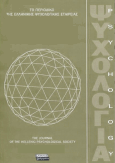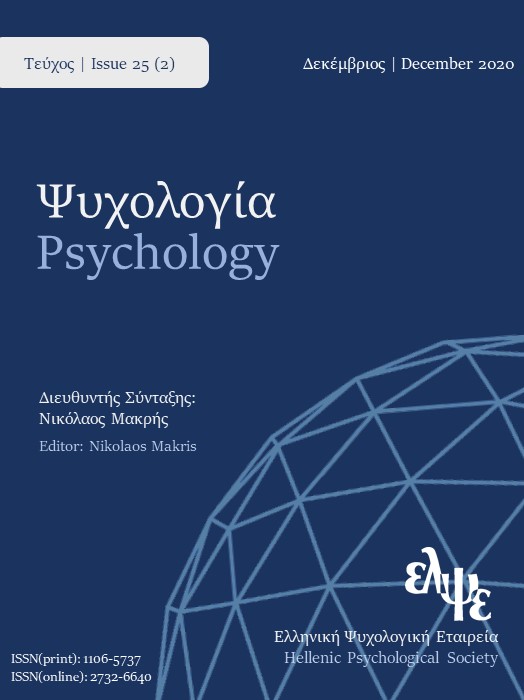Social axioms and coping strategies: the case of a Greek sample

Abstract
Social axioms are individual assessments of psychological, social, material and spiritual reality expressed as generalized beliefs or assertions about the relationship between two entities or concepts. This study explores how social axioms are associated with coping styles in a Greek sample composed of students and adults. Previous studies of how social axioms are related to coping styles showed that Social Complexity predicted the coping style of problem solving, Fate Control predicted the strategies of distancing, and Social Cynicism predicted the wishful thinking coping processes. In the present study, the 82 item questionnaire version of the Social Axioms Survey (SAS) was employed, along with the Folkman and Lazarus questionnaire of coping styles adapted in the Greek language. Both questionnaires were administered to a sample of 192 individuals, of 48 men and 144 women, among whom 108 were adults and 84 were university students. The sample was composed by two age groups: young adults-students of age 18-30 years (43.8%) and adults of age 31-59 years (56.3%). The results showed that Social Cynicism was not correlated in any way with
coping strategies; however, Social Complexity was significantly associated with problem solving strategies, and Fate control was also associated with wishful thinking and distancing coping strategies.
Article Details
- How to Cite
-
Gari, A., & Panagiotopoulou, P. (2020). Social axioms and coping strategies: the case of a Greek sample. Psychology: The Journal of the Hellenic Psychological Society, 16(2), 164–174. https://doi.org/10.12681/psy_hps.23811
- Issue
- Vol. 16 No. 2 (2009)
- Section
- RESEARCH PAPERS

This work is licensed under a Creative Commons Attribution-ShareAlike 4.0 International License.
The journal PSYCHOLOGY adopts a Platinum open-access policy. Submission, processing or publication costs are waived by the Hellenic Psychological Society. Papers published in the journal PSYCHOLOGY are licensed under a 'Creative Commons Attribution-ShareAlike 4.0 International' licence. The authors reserve the copyright of their work and grant the journal the right of its first publication. Third-party licensees are allowed to use the published paper immediately after publication as they wish, provided they retain the defined by the license copyright formalities, regarding the reference to its author(s) and its initial publication in the journal PSYCHOLOGY. Moreover, any adjusted work should be shared under the same reuse rights, so with the same CC license.



